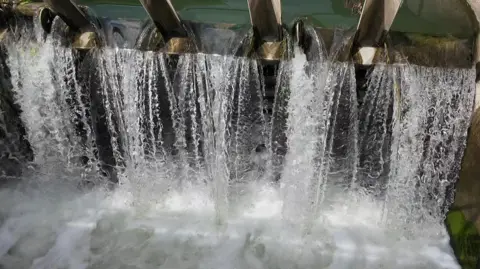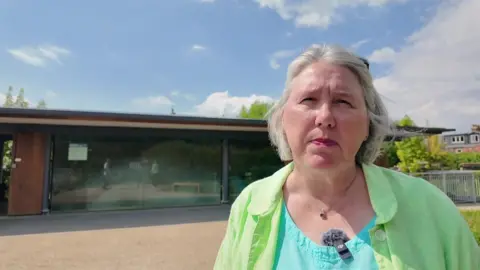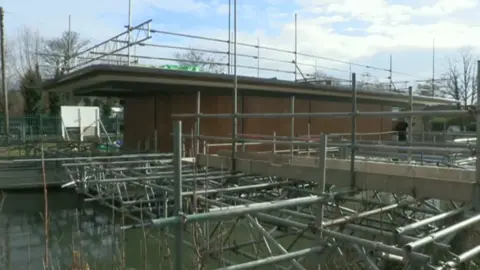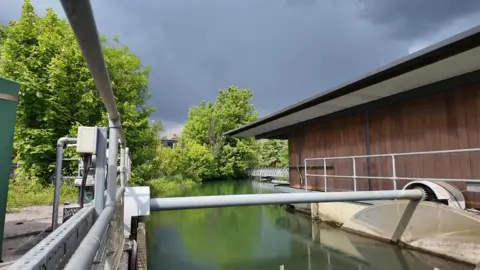Hydro marks 10 years of green electricity
 BBC
BBCIt is 10 years since Osney Lock Hydro - the first community-owned hydro to be built on the Thames – started generating electricity.
It produces an average of 165MWh of electricity each year, enough to power 60 homes. Solar panels on the roof contribute another 8MWh.
The facility in Oxford is managed by volunteers with a contractor providing technical support.
Most of the £690,000 it cost to build the hydro was raised from members of the local community through a series of share offers.
Hydropower uses the power of flowing water, such as rivers and streams, to turn turbines, which in turn power generators.
All the electricity generated at the Oxford site is consumed by the Environment Agency's Osney depot and the community on Osney Island.
The facility is open to the public Friday to Sunday and there are information boards and a digital display explaining how the hydro works.

Barbara Hammond, one of the founding directors, said: "The project was initially conceived in 2001 and it's been an incredible journey with amazing contributions from so many people.
"We believe passionately in the role community energy can play in helping reach net zero."
A fish pass, built as part of the project, has allowed fish to move up and down the river at Osney for the first time in 200 years.
The garden is managed with wildlife in mind, with a hedge of native UK species, a wild meadow and a flower border which is a feast for bees.

Architect David Hammond, a driving force in the original project, designed the powerhouse and garden area.
He died in 2023 and is commemorated at the site by an oak bench.
Osney Lock Hydro is owned by West Oxford Community Renewables (WOCoRe), a registered society, run for the benefit of the community.
In addition to the hydro, WOCoRe operates solar PV arrays on the King's Centre, an Aldi supermarket and Matthew Arnold School.
These installations were funded, like the hydro, through community share offers.

Money generated from the society's assets is used to promote carbon cutting measures in the local community and to fund nature recovery projects.
The society has a board of volunteer directors elected by the shareholders.
As a registered society, WOCoRe exists for the benefit of the community.
It delivers those benefits through generating clean energy, showcasing the potential of community energy, supporting local wildlife, and through grants to local community organisations.
You can follow BBC Oxfordshire on Facebook, X, or Instagram.
